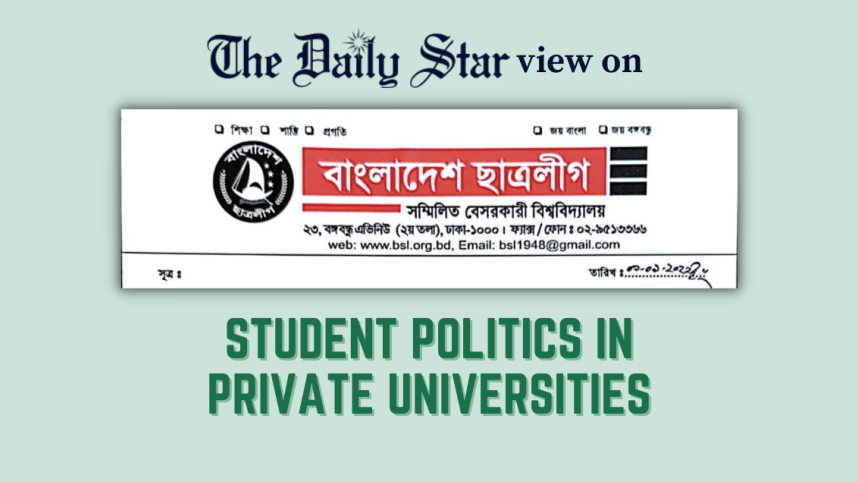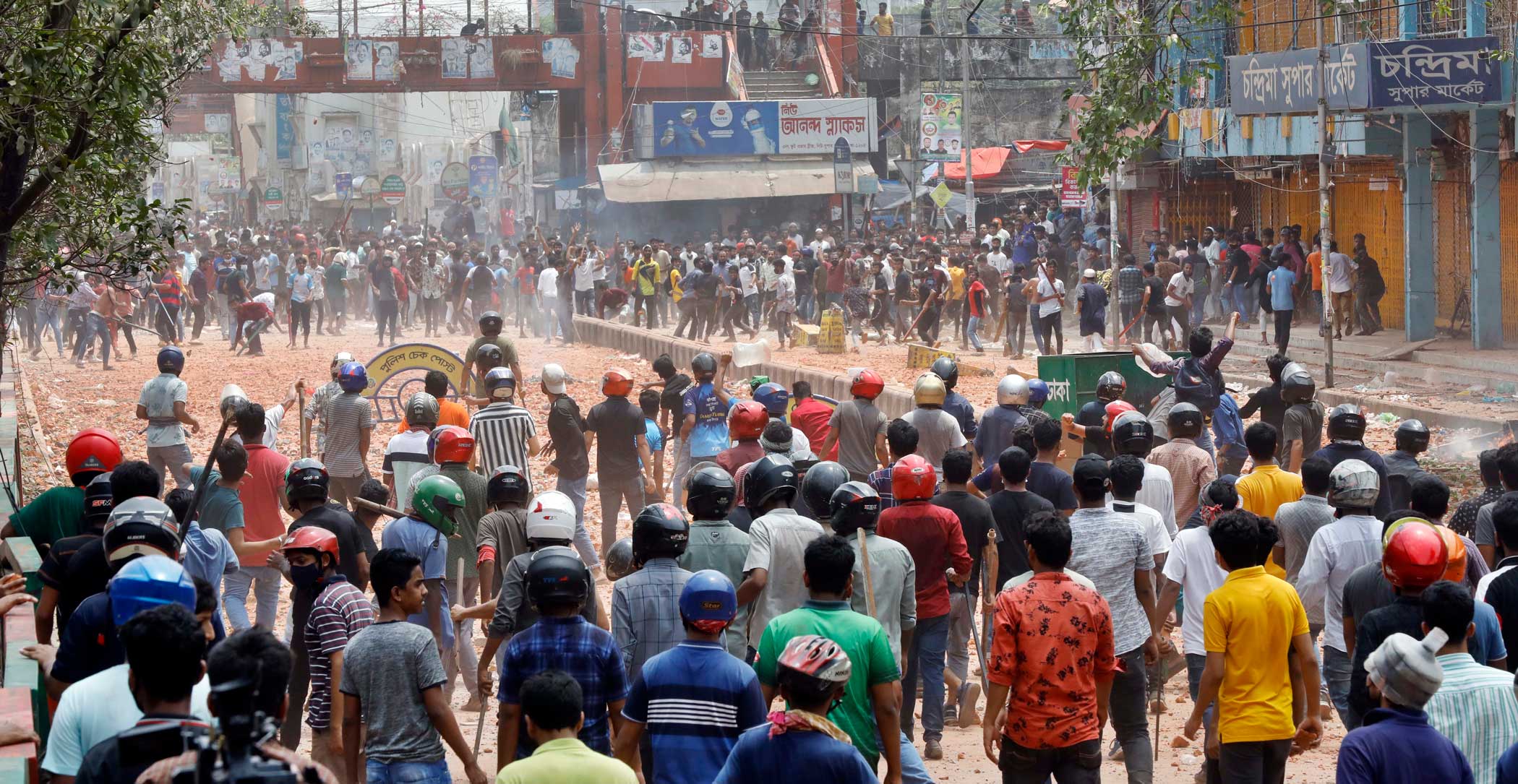BCL in private universities is a dreadful prospect

After Bangladesh Chhatra League (BCL) announced the formation of its committees in a number of private universities to "deal with terrorist activities" and "practice Bangabandhu's ideals", Education Minister Dipu Moni commented that it is up to the universities to decide whether political activities will be allowed on their premises. However, she demonstrated her tacit approval by saying that the implications of banning student politics are usually "not good", and if we want a democratic society, there is no alternative to political consciousness. But as one vice-chancellor aptly replied, "Has anyone seen anything positive coming out of student politics in the last 10-12 years?"
BCL spokespersons have mentioned how private universities being left out of political activities is allowing terrorist ideologies to flourish. While there is little, if any, evidence to back up this claim, we must ask: since when is BCL in charge of dealing with terrorism?
That this negative connotation that our brand of student politics now carries is rooted in fact was proven only yesterday, when this daily reported on how newly-formed BCL committees in three public universities include students – that too in top positions – who were expelled from the organisation for criminal activities, and even accused in murder cases. Some of the selected are also not students – a far too common occurrence when it comes to student politics. The unfortunate reality is that student politics, especially of the BCL brand, is often associated with crime, violence, extortion, illegal contracts, harassment of students and teachers, forceful occupation of university property, etc. Not to mention the fact that, in recent weeks, we have once again been reminded of how often student wings only function as an arm of their mother parties in committing violence during clashes.
Why would private universities need BCL committees in the first place? BCL spokespersons have mentioned how private universities being left out of political activities is allowing terrorist ideologies to flourish. While there is little, if any, evidence to back up this claim, we must ask: since when is BCL in charge of dealing with terrorism? And in what ways do they plan on resisting terrorism? Will they take the law into their own hands, as we have so often seen them do in public universities? If their plan is to do so through conducting social and cultural activities, then why get affiliated with a political party? And what exactly are law enforcement forces doing anyway, if BCL is required to do this job for them?
Given that so many students and their teachers and families are worried about the likely influence of party politics on their education – and we must be clear that student politics has now become synonymous with party politics – we believe they are entitled to these answers. And while we are relieved to find that a few of the major private universities have already confirmed that they will not allow student politics, we hope they will continue to have this freedom to choose and will not face any untoward pressure to change their decisions on this.



 For all latest news, follow The Daily Star's Google News channel.
For all latest news, follow The Daily Star's Google News channel. 
Comments